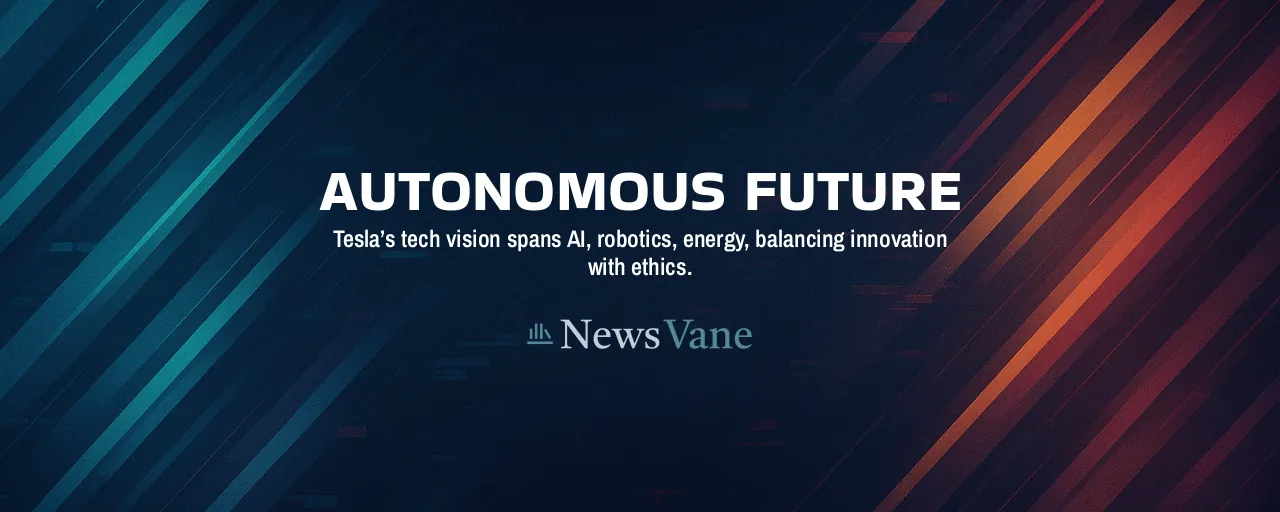More Than Just an Automaker
Tesla's market value has dipped recently, caught in the crosswinds of a competitive electric vehicle landscape. Still, analysts like Adam Jonas from Morgan Stanley hold firm, reaffirming an Overweight rating with a $410 price target. They see Tesla as a technology pioneer, a company whose work in artificial intelligence, robotics, and energy storage points to a future where its impact spans far beyond the roads.
This confidence stems from Tesla's unique blend of innovation. The company is building self-driving cars, humanoid robots, and advanced energy systems, creating an ecosystem that few rivals can match. This ambitious plan excites investors, though it also invites questions about feasibility and oversight.
Tesla's refusal to limit itself to vehicles makes it a standout. Its vision feels like it came out of nowhere, catching the attention of those who see technology reshaping daily life. But with this bold direction come real concerns, about regulation, ethics, and whether Tesla can deliver on such lofty promises. The stakes are high, and the world is watching.
The Engine of Tesla's Growth
Tesla's investment in AI and robotics forms the backbone of its long-term strategy. Wedbush analysts predict its Robotaxi service, launching with a small Austin fleet in 2025, could generate $10 billion a year by 2027. Morgan Stanley praises Tesla's Dojo supercomputer and Full Self-Driving technology, which could be licensed to other automakers. Optimus, the humanoid robot, adds another layer, with potential to revolutionize factories or even households.
The company's energy division is thriving, too. In early 2025, Tesla deployed 10.4 gigawatt-hours of storage, up 156 percent from the previous year, contributing significantly to revenue with robust margins. By using AI to optimize manufacturing and supply chains, Tesla keeps its operations lean, outpacing many competitors in efficiency.
Global EV sales hit 1.5 million in April 2025, but challenges like spotty charging networks and pricey batteries persist. Tesla faces these issues alongside new risks tied to its AI and robotics push, from technical glitches to public unease about automation. Juggling these ventures while staying a leader in EVs will demand precision and adaptability.
A World of Opportunities and Obstacles
Tesla's tech pursuits unfold amid heated debates over AI's role in society. Over ten U.S. states have introduced laws to protect data privacy and curb algorithmic bias, driven by widespread concern; 72 percent of Americans fear AI's risks. Advocates in some states call for strict rules, like requiring transparency in AI systems and safeguards against job losses, especially in manufacturing, where automation could displace millions by 2030.
Others, including some federal officials, argue for a lighter touch to foster innovation. Recent policies aim to ease AI development, focusing on economic and security benefits. This tension between progress and caution shapes Tesla's path. Its autonomous vehicles and robots need to meet varied regulations and earn public trust, proving they're safe and equitable.
Tesla's strategy aligns with a broader trend of corporate synergy, linking its AI, energy, and automotive efforts. Its ties to Elon Musk's other companies, like SpaceX and xAI, amplify this approach but raise questions about focus and governance. Staying cohesive while exploring so many frontiers will be a defining challenge.
Shaping Tomorrow's World
Tesla's trajectory hinges on its ability to turn vision into reality. Analysts see a $2 trillion market cap within reach if Robotaxi and other projects scale, but regulatory, ethical, and competitive pressures loom. Success depends on delivering reliable technology while addressing concerns from policymakers and the public.
For everyday people, Tesla's innovations promise convenience and sustainability, driverless rides, resilient power grids, smarter workplaces. Yet, these advances bring risks, like job automation and data privacy. Tesla needs to communicate openly to maintain trust, showing it values responsibility as much as progress.
Tesla's not chasing small dreams. Its bold moves could redefine industries and daily life, pushing us to rethink what technology can do. Whether it succeeds or faces setbacks, its journey will leave a mark, challenging us to balance ambition with care in a rapidly changing world.
